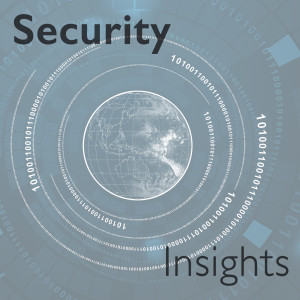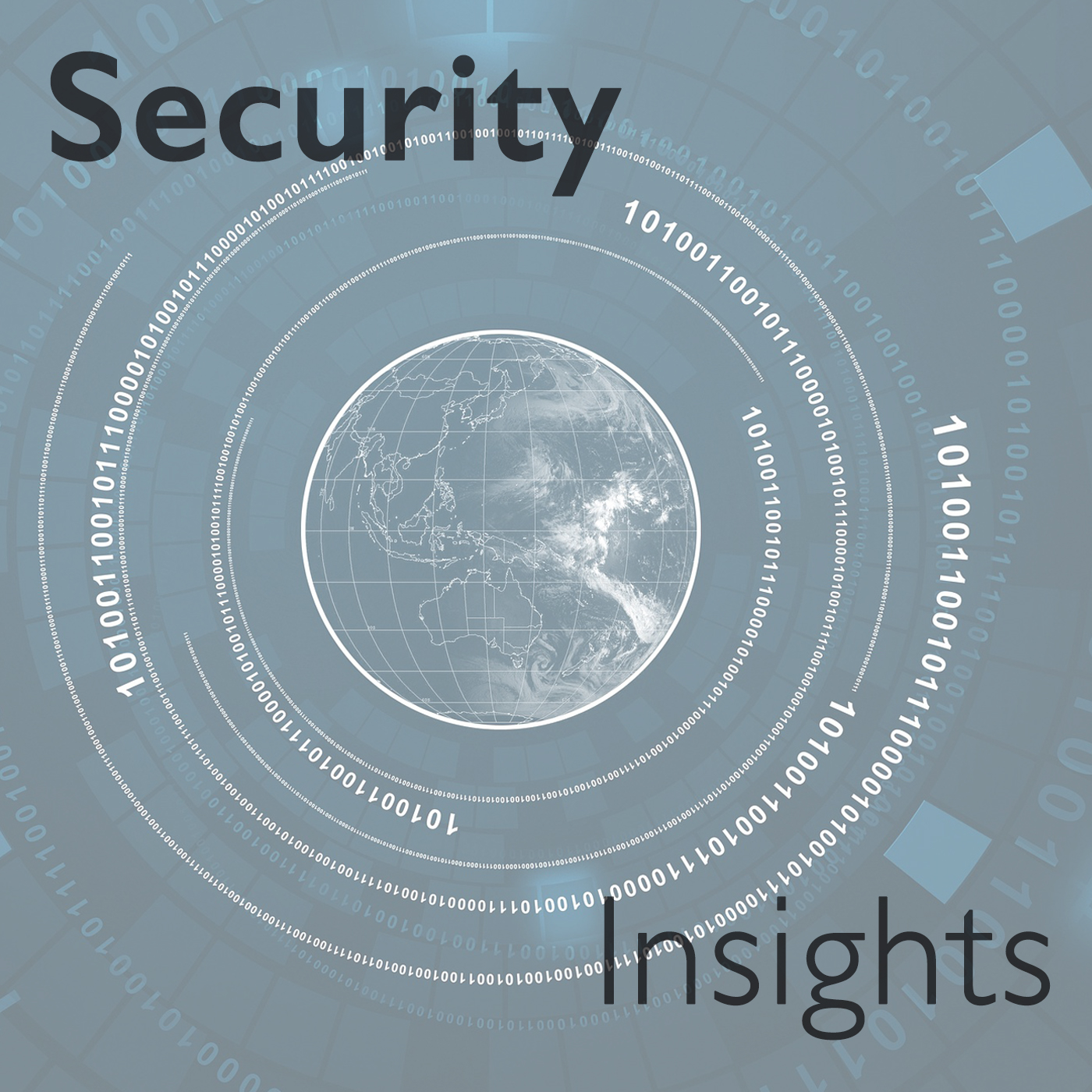Episodes

Wednesday Jan 04, 2023
Cybersecurity in 2023
Wednesday Jan 04, 2023
Wednesday Jan 04, 2023
In this extended episode, we review the key cybersecurity events of 2022, and analyse likely developments, and priorities, for 2023.
We look at Log4J, ransomware and "wiper" malware; the geopolitical situation and how the war in Ukraine is impacting cyber security, and the ongoing challenge of the industry's skills shortage.
And we review CISOs' priorities for the coming year, changes in both the threat environment and the regulatory landscape, and discuss security teams will need to handle ever more complex relationships as they look to protect supply chains.
Our guests are Sue Milton, of ISACA, and ISC(2)'s Jon France. Interviews by Stephen Pritchard.

Thursday Dec 22, 2022
Ukraine, geopolitics and cyber risk
Thursday Dec 22, 2022
Thursday Dec 22, 2022
Russia's invasion of Ukraine has brought war to the European continent once again.
And the conflict has, inevitably, brought an increase in cyber attacks against both Ukraine and its supporters.
That those attacks have not done more damage, or achieved a higher profile, is largely down to the defensive capabilities both of Ukraine and NATO.
But increasingly Russia is trying to combine cyber with physical attacks on critical infrastructure in Ukraine. How can states defend themselves against these blended attacks, and new vectors such as wiper malware? And what can NATO, and other countries, learn from Ukraine's experience?
Our guest this week is Lauri Almann. He was working at Estonia's Ministry of Defence when his country came under cyber attack in 2007. He is now co-founder and chairman of CybExer, a company that runs cyber attack simulations for NATO and other governments, as well as industry.
Here, he analyses what we have seen so far in Ukraine, and what it means for cybersecurity in the West.

Wednesday Dec 07, 2022
Fake apps and novel phishing attacks
Wednesday Dec 07, 2022
Wednesday Dec 07, 2022
According to cybersecurity researchers, attackers are turning to new and dangerous methods to carry out phishing attacks.
As security teams have improved their defences, especially around email, so the attackers have adapted too. They are using fake web apps, blog posts and even exploiting the way search engines operate, to spread malware.
In this episode we speak to Ray Canzanese, the director of Netskope’s Threat Labs and the organisation behind the research. He explains the new attack vectors, and how we can counter them, to Stephen Pritchard.

Wednesday Nov 23, 2022
5G: Revolution or security risk?
Wednesday Nov 23, 2022
Wednesday Nov 23, 2022
Over the last few years 5G networks have expanded quickly, offering faster speeds and greater capacity than previous wireless networks.
And although take up has been fastest among consumers, businesses and the public sector are looking to 5G as well, as it offers a boost in both performance and flexibility.
Applications include the internet of things, logistics and transportation, as well as telemedicine and public safety.
But 5G could also come with a significant security impact. It offers a greater attack surface, and organisations will need to adapt if they are going to run most, perhaps all, of their business processes outside the conventional perimeter.
This week’s guest — Nathan Howe, VP of emerging technology and 5G at cloud security company Zscaler — sets out some of the risks associated with 5G, and how organisations can put it to use without compromising security.

Wednesday Nov 02, 2022
Neurodiversity, neurodivergence, and cyber
Wednesday Nov 02, 2022
Wednesday Nov 02, 2022
With the skills crisis in cyber now well established, organisations are having to look beyond the conventional methods to fill vacancies.
Expanding the pool of potential talent is a key to this.
Until recently, though, little attention was paid to neurodiversity, and the idea that neurodivergent candidates -- including people with ADHD and autism -- can be highly effective cyber specialists.
But neurodivergent people face challenges entering into the workforce. Often, very bright and talented people face long-term unemployment, as conventional recruitment and career pathways are not adapted to their needs.
In this episode, we hear from two business leaders who are trying to change this. Rob Demain is CEO and founder of e2e-assure, and Emma Philpott is CEO of IASME.
We asked them about the work they have being doing with neurodivergent applicants, and employees, and the results they have seen,

Wednesday Oct 19, 2022
Cyber’s $150bn black hole: operationalising cybersecurity
Wednesday Oct 19, 2022
Wednesday Oct 19, 2022
Cybersecurity spending seems to be on a never-ending upward curve. But this spending, spending, which analysts put at US$150bn annually, doesn't seem to reduce the number of cyber threats.
Could it be that we need a new approach to security?
Our guest this week is Jason Hart, CTO, EMEA at Rapid7. He argues that the problem is that we are spending money, but are not making security part of the culture, or central to how we do business.
In this episode, we look at whether a new approach could both make organisations safer, and produce a return on investment from all that spending.

Wednesday Oct 05, 2022
DDoS’ shifting focus: war, religion and politics
Wednesday Oct 05, 2022
Wednesday Oct 05, 2022
Over the last six to twelve months security researchers have seen a shift in the pattern of cyber attacks, as the impact of the pandemic has largely been replaced by a focus on the Russian invasion of Ukraine.
Security firm NETSCOUT runs one of the largest monitoring projects for DDoS attacks. They have, for example, seen falls globally in DDoS activity, but an increase in the EMEA region.
Deterring and prosecuting those behind the attacks is as hard as ever, argues Richard Hummel, ASERT Threat Intelligence Lead, at NETSCOUT.
But, he says, there are steps organisations can take to counter the threat, and to keep critical online services working.

Wednesday Sep 21, 2022
Why do we love weak passwords?
Wednesday Sep 21, 2022
Wednesday Sep 21, 2022
Passwords are still a cornerstone of web security, especially for consumer-facing sites.
But convincing consumers, and firms, to use stronger passwords remains a struggle
Steven Furnell is a senior member of the IEEE, and professor of cybersecurity at the University of Nottingham.
For the last 15 years, he has been tracking the password policies of leading web and ecommerce sites. Do they, for example, allow weak or easy to guess passwords?
And how easy do they make it for users to pick stronger passwords, or to use alternatives such as multi-factor authentication?
The answers have implications, not just for security online, but for the way we use passwords in business too.
Interview by Stephen Pritchard

Wednesday Sep 07, 2022
Risk or reward: can we control cyber risks?
Wednesday Sep 07, 2022
Wednesday Sep 07, 2022
How can we control cyber risks? And how do cyber risks stack up, against the other challenges facing business?
Cyber threats have risen steadily over the last few years, and the move to digital business has created its own security challenges.
But at the same time, conventional risks have not gone away. Only recently we've seen wildfires and floods. And we are still feeling the after effects of the global pandemic.
How does an organisation balance physical threats and cyber risks, against the need to become more efficient and to grow? And how do we measure the risks we have to accept? Our guests this week are Pauline Losson, director of cyber operations, and Todd Carroll, CISO, at CybelAngel.
Interview by Stephen Pritchard

Wednesday Aug 24, 2022
Closing the skills gap – part 4: Michael Smith, Neustar
Wednesday Aug 24, 2022
Wednesday Aug 24, 2022
Is there a "hiring gap" in cybersecurity?
Over the last few episodes on Security Insights, we’ve looked more deeply at the skills skills shortage. But is the problem as much down to matching candidates to roles, as it is finding the right people?
And are organisations failing to do enough to develop the staff they do recruit, and so ensuring they stay?
In week's episode, our guest Michael Smith, field CTO at Neustar Security Services, argues that the issue goes beyond skills alone. And firms need to invest more in security, and in their staff, to keep up with the move to digital business.
Interview by Stephen Pritchard

